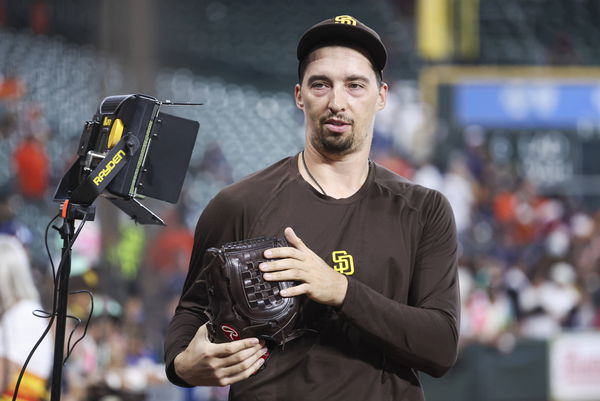

The Philadelphia Phillies are no strangers to blockbuster moves. They’ve splashed the cash on star players like Zack Wheeler and Aaron Nola, signaling a fierce desire to win now. So, when former Cy Young winner Blake Snell became a free agent, it seemed like a natural fit. But instead of a bidding war, there was silence.
The Phillies are surprisingly disinterested in acquiring Snell this season. Their decision highlights the complex calculations faced by modern MLB teams, where factors beyond immediate on-field boosts come into play.
ADVERTISEMENT
Article continues below this ad
Blake Snell vs. The Draft Pick Cost
In recent years, the Phillies have struggled to replenish their farm system, in part due to surrendering draft picks when signing free agents with qualifying offers attached. “Those missing picks… have harmed their farm system,” explains Matt Gelb of The Athletic.
The Phillies are interested in 2x Cy Young winner Blake Snell, per @BNightengale.
Signing Snell would lose the Phillies two draft picks, $1M in international bonus pool money, and push next year’s first round pick back 10 spots.
What’s everyone’s thoughts?
— 𝐾𝑦𝑙𝑒𝑒 シ (@BSP_Sully) March 3, 2024
This history has likely made them wary of losing more picks. Signing Blake Snell—who rejected the San Diego Padres’ qualifying offer this offseason—for even a short-term deal would have meant forfeiting draft choices and international signing pool money—a price too high for a team focused on rebuilding its talent pipeline. As a bonus conundrum, the Phillies already operate with a payroll that pushes them deep into luxury tax territory.
Adding Blake Snell’s expected salary (he and agent Scott Boras are looking for a deal somewhere north of a $30 million AAV) would have triggered escalating penalties. Market reports calculate that their next $15 million in spending faces a 62% tax, an expense the Phillies might not consider worth the on-field gain.
Read More: MLB Free Agency: 4 Top Contenders Left For Star Pitchers Blake Snell and Jordan Montgomery
Even more concerning is that a Snell deal could have pushed them into the highest CBT penalty tier, dropping their 2025 draft pick by ten coveted spots. Dave Dombrowski, the Phillies’ President of Baseball Operations, acknowledged the situation: “There’ll be some challenges.” Thankfully, while the Phillies might lack Snell’s star power this season, their rotation isn’t turning out to be too weak for contention.
The gamble on developing talent
The Phillies’ rotation beyond Wheeler and Nola features a mix of experience and potential. Ranger Suárez offers a crafty left-handed presence, while Taijuan Walker brings a veteran’s savvy to the mound. Youngster Cristopher Sánchez provides depth and upside as he continues to develop his repertoire.
Zack Wheeler and the Phillies have agreed to a multi-year extension. Wheeler would have been the No. 1 pitcher free agent next fall, but instead, he stays in Philly. By season’s end, he will also accumulate 10-5 rights, and with that the power to veto any trade. Announcement…
— Buster Olney (@Buster_ESPN) March 4, 2024
ADVERTISEMENT
Article continues below this ad
The organization also seems confident in prospects like Mick Abel and Griff McGarry, who could step into big league roles soon. Moreover, they recently added intriguing reclamation projects like Spencer Turnbull and Kolby Allard, providing added depth.
Ultimately, the Phillies are betting that this internal talent development strategy will yield results comparable to a Blake Snell acquisition without the costly penalties. This focus on the farm system is a shift from their previous approach, where reliance on free agency often depleted their draft resources. The hope is that this renewed focus will lead to a more sustainable pipeline of young talent.
ADVERTISEMENT
Article continues below this ad
Read More: Zach Wheeler’s $126M Deal Puts Blake Snell Out of Phillies’ Financial Reach
Of course, this approach carries risk. Young players are notoriously unpredictable, and there’s no guarantee that the prospects will pan out. If injuries strike their rotation or their developing pitchers falter, they could find themselves scrambling for reinforcements mid-season, potentially losing valuable ground in the playoff race. For now, let’s keep our fingers crossed, shall we?
ADVERTISEMENT
ADVERTISEMENT
ADVERTISEMENT
ADVERTISEMENT


